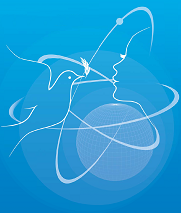Speaker
Lainy Dromgoole
(Texas A&M University, USA)
Description
Texas A & M University Women in Nuclear (WIN-TAMU) seeks to provide professional development opportunities for its members while also reaching out to the public both on the university campus and the surrounding local community. The purpose of this poster is to share best practices and learning experiences promoting the career development and education of women in nuclear-related fields acquired over five years of existence as a chapter.
Since its reestablishment in 2010, WiN-TAMU has hosted events for women in disciplines related to nuclear technology, including presentations from experts in the nuclear field, Q & A sessions with nuclear engineering faculty, workshops on communicating technical issues about nuclear to the public, public screenings of nuclear films, technical tours of nuclear power plants, medical facilities and regulatory bodies, and socials to build camaraderie among members.
WiN-TAMU collaborates with the Nuclear Power Institute (NPI) by interacting with high school students in NPI’s POWER SET programs. POWER SET (Powerful Opportunities for Women Eager and Ready for Science, Engineering, and Technology) provides young women with the educational tools and support to pursue education and careers in science, technology, engineering, and math (STEM). The POWER SET students also interact with members of WIN at Texas’s two nuclear power plants, Comanche Peak and South Texas Project. This tiered approach provides the students with the perspectives of WIN members at various stages in their education and careers. As of the end of the 2014 school year, 81% of the students self-identified that they will pursue STEM course of study (as opposed to the U.S. average of 15-17%). The POWER SET model has recently been implemented internationally in the Philippines with a new program of 50 young women and is being considered for implementation at the Vienna International School as well.
| Country or International Organization | USA |
|---|
Author
Lainy Dromgoole
(Texas A&M University, USA)

